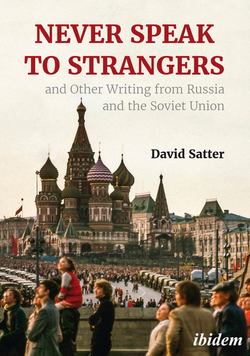Читать книгу Never Speak to Strangers and Other Writing from Russia and the Soviet Union - David Satter - Страница 34
На сайте Литреса книга снята с продажи.
ОглавлениеERZEUGT DURCH JUTOH - BITTE REGISTRIEREN SIE SICH, UM DIESE ZEILE ZU ENTFERNEN
Financial Times, Tuesday, April 15, 1980
Caviar sold as herring
200 Soviet Officials Held
The Soviet authorities have arrested more than 200 employees of the Fisheries Ministry, including top officials, in connection with a multimillion dollar caviar swindle which appears to be among the most serious economic crimes in Soviet history.
It is understood Ministry officials made a secret and illegal agreement with a Western firm to send black caviar abroad in sealed 3–5 litre tins marked “smoked, seasoned herring.”
A Western firm which imported the caviar paid the hard currency price for herring. Then it repacked the caviar and sold it at enormous profit, splitting the proceeds with Ministry officials, whose share was deposited in Swiss bank accounts.
Economic crimes involving foreign currency, are punishable by death in the Soviet Union if big enough. It is believed more than 150 people could be liable to capital punishment for their role in the caviar operation which involved the Okean stores in Moscow and was undetected for more than 10 years.
Fisheries Ministry officials asked about the report declined to speak to the Financial Times. However, an official of the Internal Affairs Ministry acknowledged he was working on an investigation involving the Okean stores, but declined to discuss the case.
The Soviet Foreign Ministry also declined to comment and there has been no mention of the case in the press.
The Soviet system, with its uncertain distribution network, shoddy consumer goods and tough currency restrictions, creates rich opportunities for black market operations and illegal economic activity. Some is overlooked by the authorities if it is economically beneficial.
There is a history of large scale operations, although not, it is believed, as complex as the caviar swindle. The insistence on fulfilling the plan creates possibilities for massive concealment, if all staff of an enterprise are willing to falsify results.
What appears unprecedented in the Okean scandal is the alleged involvement of Ministry hierarchy, as opposed to an individual enterprise, and that the payments were in hard currency.
The investigation has been going on since February last year, when Mr. Alexander Ishkov resigned as Fisheries Minister. Also replaced were other high officials, including Mr. Vladimir I. Rytov, a deputy minister, Mr. I. V. Nikonorov and Mr F. P. Zaitsev, two Ministry Secretariat members; and Mr. S. I. Gushchyan, deputy chief of resources and fish products marketing.
Besides the more than 200 people arrested in Moscow, hundreds of people involved in processing, packing and distributing caviar have been held in the provinces, especially Soviet Azerbaijan, where most black caviar originates.
Also apparently involved in the operation were scores of restaurant managers in Moscow, the Black Sea resort of Sochi, and other cities.
Mr. Ishkov has not been arrested, although the state prosecutor’s office has demanded that he be charged. Other major figures are about to go on trial, however, and the investigation continues.
Red caviar from the Soviet Far East and other types of fish delicacies were also reportedly involved, but black caviar was the largest item because of the substantial increase in production from the Caspian Sea in the last 10 or 15 years.
Mr. Alexei Kosygin, the Soviet Prime Minister, is reported to have interceded for Mr. Ishkov—one of the longest-serving Ministers and a member of the Communist Party Central Committee—at the beginning of the investigation last year. It is not known if Mr. Kosygin has involved himself in the case since then.
If Mr. Ishkov were brought to trial, it would be the first time in Soviet history that a Minister had been charged with violation of the criminal code.
In the past, high-ranking officials accused of corruption have been allowed to retire or, in some cases, to retain their posts after a warning.
There is reported to be strong sentiment in favour of bringing Mt Ishkov to trial because of the size of the operation and because top officials of an entire ministry were reportedly implicated.
It is understood the operation might have continued undetected for many more years, but for what one source described as a case of “typical Russian disorganisation.” Some of the mislabelled tins of caviar began to slip into general circulation.
